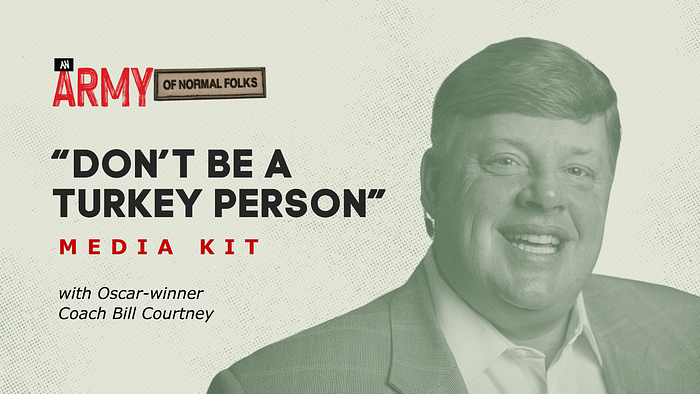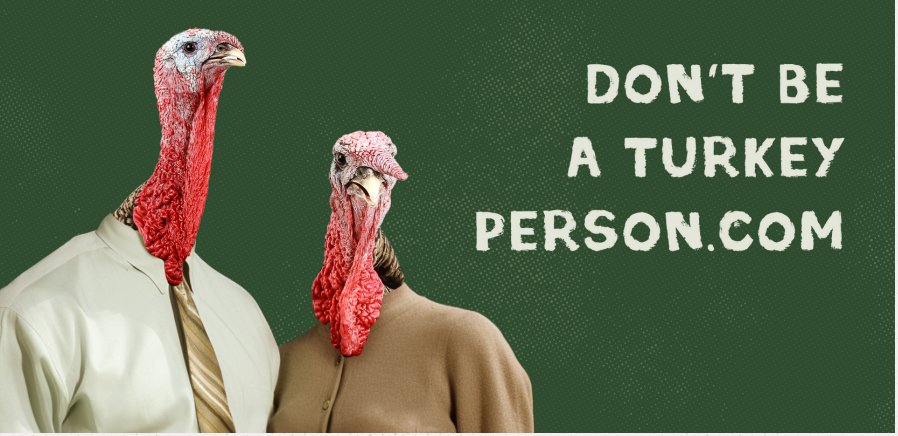An Interview With Chad Silverstein
Bill Courtney is a successful entrepreneur, acclaimed motivational speaker, and high school football coach. He is the founder and CEO of Classic American Hardwoods, a leading hardwood lumber company, which he grew from a small business to a multi-million dollar enterprise. His entrepreneurial journey was chronicled in the Oscar-winning documentary Undefeated, where his leadership skills and dedication to his team were highlighted.

Thanks so much for joining me. Let’s start with a little bit about your background. Feel free to share whatever you want about your early days.
Sure, I grew up in Memphis. My Dad left home when I was 4 and he actually passed away earlier this year. My Mom was married and divorced 5 times. I graduated with a degree in English and a degree in psychology and ended up taking a teaching job and coaching football. I’ve been married for 32 years and have four children. Early on, I wasn’t making enough money to support my family so I decided to start a business in 2001. Today, I have 140 employees and did 80 Million in sales last year in 42 different countries. I still love football and continue to coach.
You’re career as a coach is impressive. How did it lead to you getting an opportunity to be in a movie?
I found a high school team that had 17 kids. Everyone knew Manassas was the worst team in the state. Over a ten-year period, they only won 4 games and lost 95. Seven years later, we had 75 kids playing, 18 of whom went to college, which was a really big deal. One day, some guy from Hollywood showed up and said they wanted to make a movie about us. Next thing I know, I’m walking down the red carpet at the Academy Awards with George Clooney and P. Diddy.
That’s incredible. Can you share something about your experience as a coach that had a significant impact on your life?
The learning opportunities happen when you ask questions and the kids trust you enough to tell the truth, and that doesn’t happen overnight.
When I first started, half the team was buying into the important stuff I was trying to teach, but the other half was back on the street after practice engaged in destructive behavior. I was so frustrated. I had one guy who I knew would tell me the truth so I asked him “What do I have to do to get the other half of the team to buy into what we’re building” he said, “Coach, you’re all good on the football stuff, but these guys are still trying to figure out if you’re a turkey person”. I had no clue what he was talking about, and then he said “Coach, every Thanksgiving, and Christmas, people from all over roll into our neighborhoods, and they give away gifts, hams, and turkeys. So we take them because we don’t have anything else, but then they leave, and we never see them again. I couldn’t believe I was being compared to people who drop off turkeys and never come back. I was literally here with these guys more than I was with my own family. This was a big wake-up.
The truth was, I wasn’t paying attention to my own mantra because the fact that half of the team was in the streets was my problem. One of the big changes I made was when I was asked about anything regarding the team. Instead of sharing what I was working on, I started bragging about the kids. I wanted them to have the spotlight. They were doing great things and taking extraordinary steps and deserved the limelight.
This became one of my greatest life lessons and I sum it up like this: If you give away turkeys on Thanksgiving, that’s a beautiful thing. If you serve at soup kitchens, that’s incredible. But the real question is what’s your motive?
If you’re engaging in society to try to help people less fortunate because you’re motivated by slaps on the back, getting credit for being a good guy, or for the nice things people will say about you, then you’re in fact — a turkey person.

What’s the heart of your message that you want people to know about why you’re trying to wake people up about this social impact initiative?
The real impact is not the turkey, the ham, or the gift. The real impact is the interpersonal connection you develop with someone. The payoff is going to be that you learn about others whom you normally don’t interact with, and that only happens if the people you seek to serve see your motives as pure.
If you and I are having a conversation three years from now, and we’re looking back at the past 36 months. What specifically has to happen for you to be happy with your progress?
I want one million weekly listeners to hear my podcast. I do a lot of interviews, and I get a chance to share some incredible stories of amazing people doing incredible things that will inspire others to take action. If a million people listen that would drive a huge social impact that could be life-changing for a lot of people.
How did you start your podcast?
I got a call one day from this guy who said he wanted to start a podcast and call it “An Army of Normal Folks”, and that I would be the host. He told me he’s got a big network and would find the people extraordinary people for me to speak to and we would highlight their stories. We started releasing episodes and it exploded reaching as high as #10 in the country on Apple. I quickly realized we can have an enormous impact and it will inspire a lot of people to do great things. More importantly, not be a turkey person, and instead be motivated by the right things.
Talk to me about your company and how all of this translates to your work and with your employees.
The True Sign of a Leader
Bill Courtney knows a thing or two about leadership. Check out this one-liner on how he defines how a leader should be…
youtube.com
I have an entire team of people that I have an opportunity to serve every day, many of whom are right outside my office door. I make an effort to connect, learn their names, and find out what their fears, ambitions, and goals are. I can try to help as their leader and show them how they can attain those dreams and goals. I’m also realistic about the fact that sometimes those goals can’t exist inside my organization, so I have to work on ways to help them transition to a better place. When people see you do that consistently and with a level of concern and care, word gets around.
I believe in servant leadership. I believe that you can’t be a turkey person, and that’s going to take an army of normal folks to impact true change in our world, and it’s not going to come from the government or the media.
If you could share some advice for anyone striving to become an entrepreneur, what would it be?
If you’re not willing to pay everyone in your company and not take a paycheck yourself, don’t bother starting a business. There’s not a single business out there that at some point doesn’t experience difficult times, and the question is, are you willing to make sure everybody is made whole even if that means you won’t make anything for a period of time until you recover.
What are your goals for your business over the next several years?
We try to grow our revenue by at least 10% every year. I would love for us to be doing 100,000,000 in sales, which is incredible being that I still remember being broke when I started this company. We also have a little bit of debt and I would like to see us be debt free. The best part about that is becoming debt-free means that I have approximately 35,000–40,000 dollars of free cash flow not going towards paying interest and I could take a portion of that and reward people who have been with me for a long time and have been instrumental in helping us get to where we are today.
What do you actually do every day at work? How has that changed over the years?
For many years, I was doing everything. I always had good people around me, but I was the weekend installer, the salesman, and the operator. As I grew the company I’ve been fortunate to have a core group of people who’ve been with me for a long time, some 15 and 20-year employees. Today, I spend a lot of time reviewing reports that come from each of our production lines so that I can evaluate snapshots of what’s going on, understand our cash flow, and stay on top of any downtime. This is how I manage to keep up with the day-to-day operations of the business. I also spend a lot of time thinking about what can we do next to be successful. What we can look at to be more on the cutting edge using technology, and what kind of new equipment can we incorporate to be more efficient? We have a rolling one, three, and five-year plan that I stay on top of and my team focuses on the short term, while I keep my eye on the long term and vision for the business.
Bill, thanks for spending time with me and sharing your social impact initiative and all of the leadership insights. Where can people find your podcast so they can start listening?
The website is www.normalfolks.us or click to listen to Bill’s Podcast
About the Interviewer: Chad Silverstein is a successful entrepreneur with more than two decades of experience as a successful founder and CEO. He started his first company, Choice Recovery, Inc. a third-party collection agency, out of his apartment while going to The Ohio State University. He grew the business nationwide and represented more than 10,000 clients before he sold the company on his 25th anniversary. Chad’s second venture [re]start, a career development platform that helps people find new jobs, launched in 2013 as a division inside his agency. [re]start was a catalyst to Chad’s team becoming an industry outlier after connecting thousands of people sent to collections with new career opportunities so they could afford to pay their bills and get out of debt. His team was nationally recognized for their social impact, while twice being ranked the #1 business to work for in Central Ohio. Chad sold [re]start in 2023 and is now a writer and thought leader for Authority Magazine’s Entrepreneur and Sports Editorials. He also offers an exclusive executive leadership program inside his online community at Authentic Authority.
